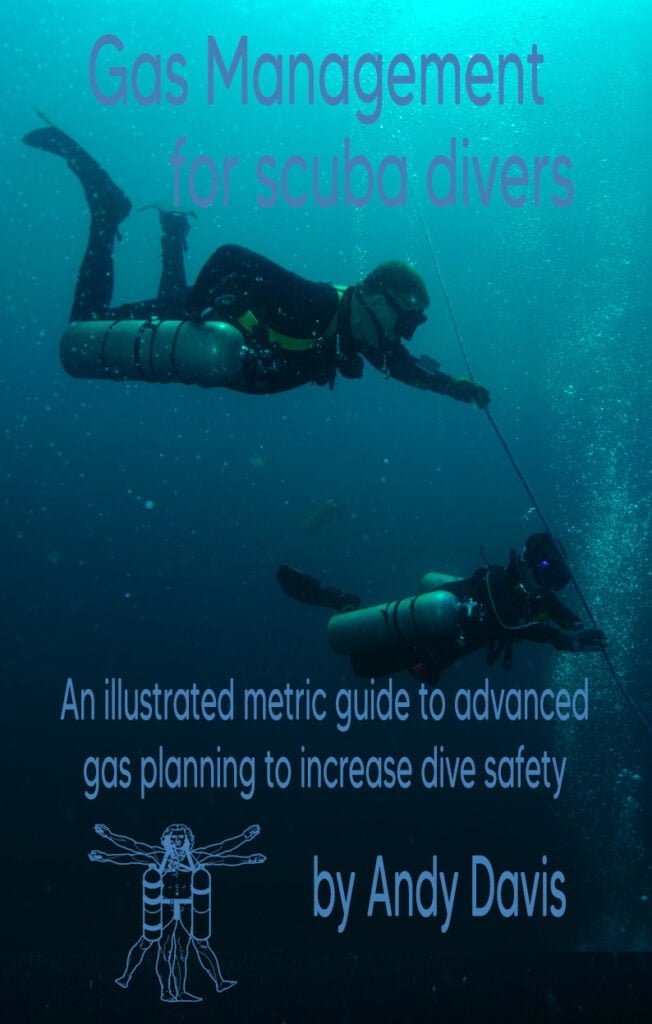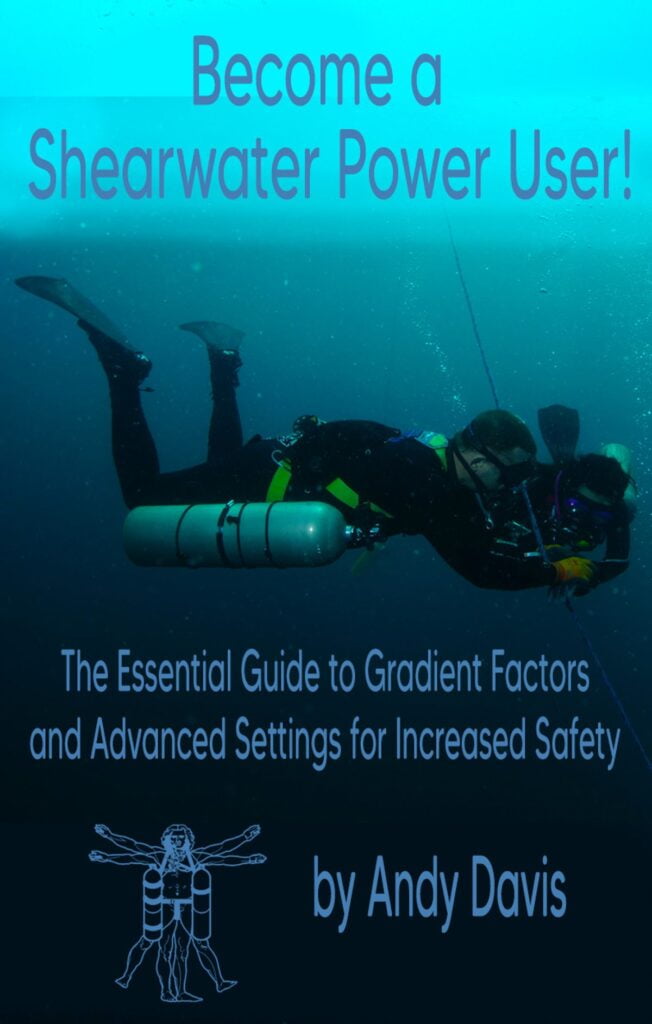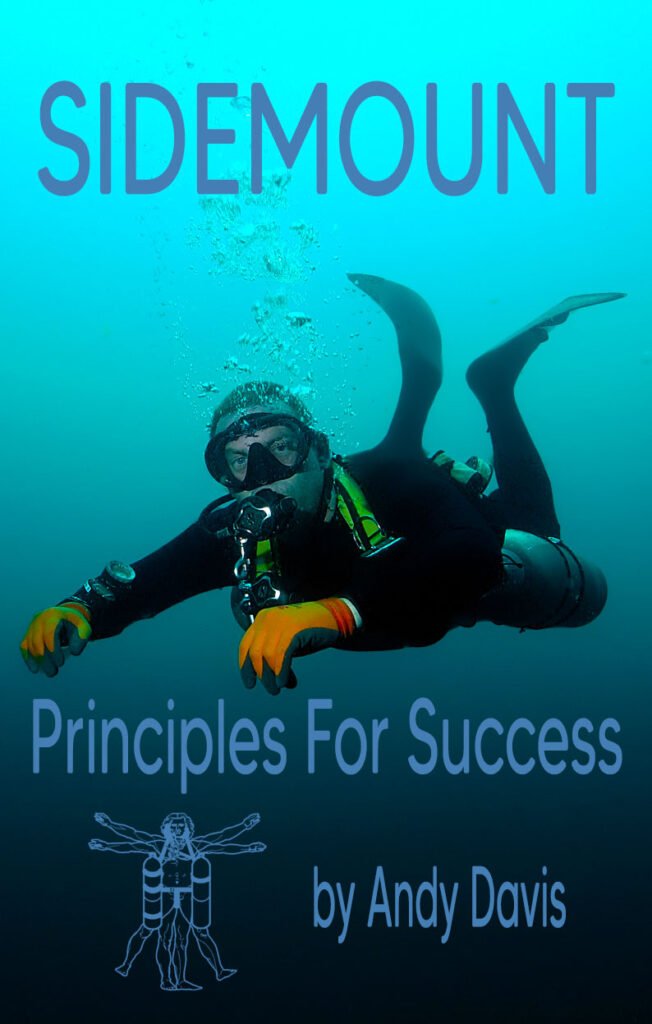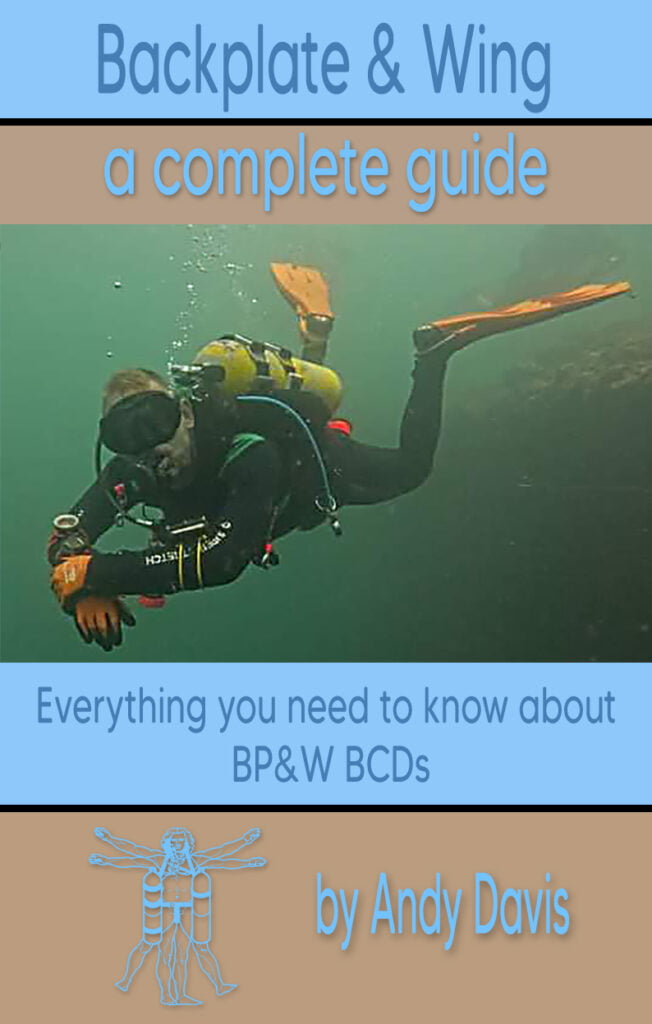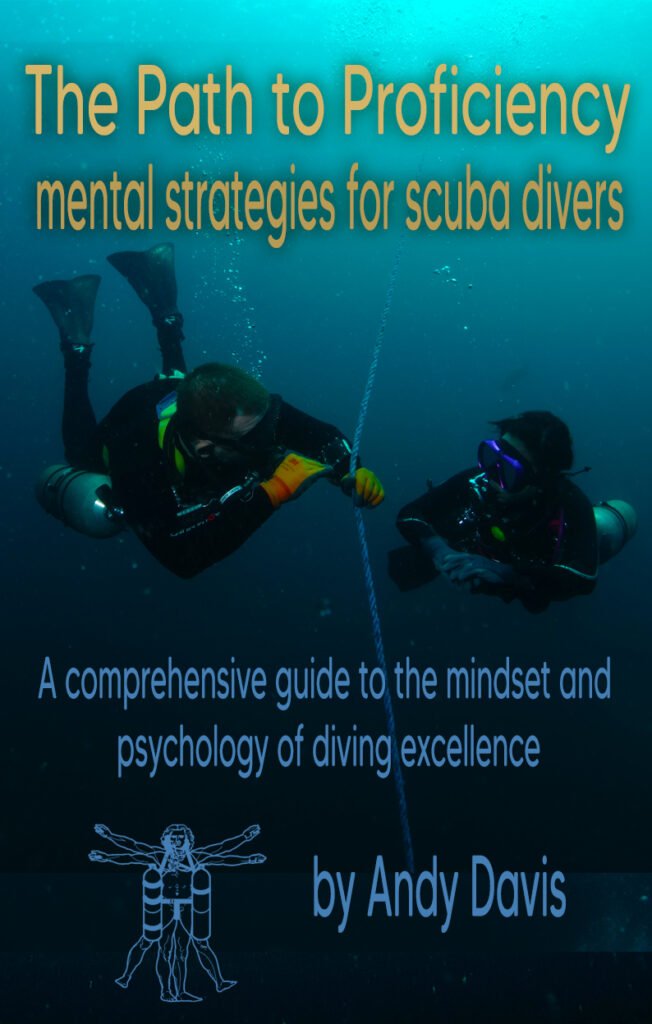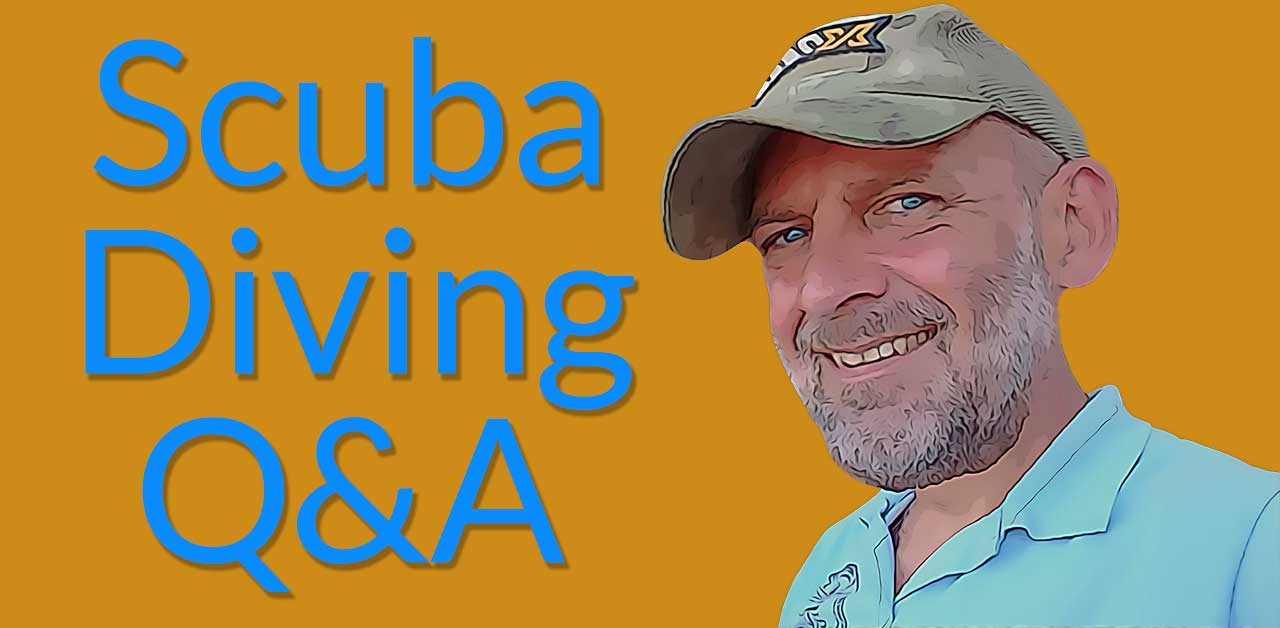Scuba Diving FAQs: Common Dive Questions and Expert Answers
Welcome to my Scuba Diving FAQs page, where you’ll discover the answers to all your dive-related questions!
As a full-time technical diving instructor with over 30 years of experience diving across the globe, I have a wealth of knowledge to share with you. These scuba diving FAQs cater to both seasoned scuba divers looking to elevate their skills and knowledge, and curious non-divers seeking more information about the fascinating underwater world.
So, whether you’re preparing for your first dive or looking to enhance your diving proficiency, this Scuba Diving FAQs page aims to be the definitive source for all your dive-related questions.
Scuba diving utilizes Self Contained Underwater Breathing Apparatus (acronym: SCUBA) to breathe underwater, rather than breath-hold or surface-supplied diving.
The 6 reasons scuba diving is popular:
– Adventure
– Natural beauty
– Historical appreciation
– Relaxation
– Physical & mental challenge
– Sense of community
Scuba diving is safe if trained and certified divers apply their skills and knowledge to mitigate foreseeable risks and resolve problems before they escalate.
The risks of scuba diving are:
Decompression sickness (DCS)
Nitrogen narcosis
Barotrauma
Hypercapnia
Hypoxia and Hyperoxia
Hypothermia
Marine life injury
To become a certified diver, you must attend and complete an entry-level scuba diving course, such as Open Water Diver, from a recognized dive training agency.
A good scuba diving course has the following characteristics:
Agency accreditation
Qualified instruction
ISO & RSTC recognized
Value for money
Student recommendation
The 4 types of dive training agency are:
Recreational: PADI, SSI, NAUI
Technical diving: RAID, TDI, IANTD
DIR diving: GUE, UTD, ISE
Club-based: BSAC & CMAS
Open Water Diver: 18m/60ft
Advanced Open Water: 30m/100ft
Deep Diver: 40m/130ft
Extended Range: 50m/165ft
Normoxic Trimix: 60m/200ft
Full Trimix: 100m/330ft & deeper
– Good physical and mental health
– No contraindicated medical conditions
– Adequate respiratory lung function
– Basic swimming proficiency
– 10 years or older
The minimum age for scuba diving with most dive training agencies is 10 years old with supervision. Adult certification is possible at the age of 15 and above.
The challenge of diving is individual, but anyone can learn if they possess medical fitness, basic swimming skills & a willingness to follow safety procedures.
Scuba diving courses can help people overcome being scared of water (hydrophobia) if the dive instructor is patient and sensitive to gradually build confidence.
Limits to dive depth & time exist to protect divers from decompression sickness & nitrogen narcosis & ensure a diver can ascend to the surface in an emergency.
General recreational diving
Videography & photography
Specialty diving: such as night, altitude, or ice diving
Technical decompression diving
Cave & wreck diving
Costs depend on the region & the quality:
Certification training: $300 to $800
Scuba gear rental: $25 to $50 per day
Scuba gear purchase: $500 to $3000
Scuba diving is beneficial for:
Physical & mental health
Environmental conservation
Adventure & Exploration
Knowledge & Education
Personal growth & challenge
Scuba diving gear consists of:
Buoyancy Control Device (BCD)
Regulator
Mask, snorkel, fins & boots
Dive computer or watch & depth gauge
Wetsuit or drysuit
Yes, beginners can scuba dive with proper training and guidance. It’s a thrilling and rewarding sport that can be enjoyed by anyone.
The cost of a scuba diving course varies depending on location, level of certification, and equipment needed. Expect to pay anywhere from $200 to $1000.
It is not recommended to dive without proper training and certification. Scuba diving carries risks, and it’s essential to know how to manage them.
Scuba diving should not hurt if proper techniques and equipment are used. Any discomfort can usually be remedied with adjustments to gear.
Breathing underwater can take some getting used to, but with proper training and equipment, scuba diving is not difficult to breathe.
Beginner divers can typically dive to a depth of 18 meters (60 feet), but this can vary depending on certification level and local regulations.
Scuba diving does not have licenses. Although dive shops, resorts, and boats will usually ask to see a certification card as proof that you were trained.
Scuba diving can be an expensive hobby, with costs for gear, certification, and travel. However, there are ways to keep costs down, such as renting gear.
Swimming skills are necessary to scuba dive, but you don’t need to be an expert. You should be comfortable in the water and able to swim a short distance.
Scuba diving equipment costs vary widely, depending on quality and function, from a few hundred dollars for basic gear to several thousand for high-end options.
The cost of entry-level scuba training can be as low as $300 or as high as $1200. Cost can reflect the training quality, which affects your safety when diving.
Scuba diving is a low-impact exercise that can improve cardiovascular health, stamina, leg strength & muscle tone. It’s also an excellent way to reduce stress.
Scuba diving has many health benefits, such as reducing blood pressure and improving mental well-being. It can also be therapeutic for some medical conditions.
Scuba diving is an active hobby that can burn up to 700 calories per hour. Combined with healthy nutrition it can help as part of a weight loss campaign.
You can burn up to 700 calories per hour while scuba diving, depending on factors such as water temperature, distance covered, exertion and technique efficiency.
Scuba diving offers the opportunity to see a variety of marine life, such as fish, sea turtles, and coral reefs. Some locations also offer shipwreck dives.
SCUBA is an acronym that stands for Self-Contained Underwater Breathing Apparatus; equipment that delivers breathing gas to the diver when diving underwater.
Scuba diving is possible if you have a high BMI, but you should be aware of the potential risks & physical demands. Consult a doctor before learning to dive.
Studies show scuba diving helps reduce stress, anxiety & depression. It can also improve social health, physical fitness, self-esteem, focus & overall well-being.
Never hold your breath
Plan your dive, dive your plan
Don’t dive if congested
Do pre-dive gear checks
Use the buddy system
No alcohol/drugs before diving
Ascend slowly
Based on studies, DAN recommends a minimum time before flying:
Single dives: 12 hour
Repetitive or multi-day diving: 18 hours
Decompression dives: 24 hours
The length of a scuba dive depends on several factors, including the depth, air supply, and the diver’s respiratory rate. Most dives range from 30-60 minutes.
Lower air pressure in an aircraft provokes nitrogen bubbles to form in the body, causing decompression sickness. Wait 12-24 hours to decompress before flying.
Before scuba diving you should not:
Use alcohol or drugs
Become dehydrated
Eat a large meal
Have insufficient sleep
Be stressed or upset
Allow distractions
Avoid heavily spiced dishes, heavy meals & difficult to digest foods high in fat or red meat proteins. Do not drink alcohol. Moderate your coffee consumption.
After scuba diving, avoid flying or going to high altitudes, strenuous exercise, dehydration, massages, hot saunas, jacuzzies, showers, or baths.
It is okay to moderately drink alcohol after diving, but avoid excessive intake which leads to dehydration; a pre-disposing factor in decompression illness.
After diving, your body contains excess nitrogen. Avoid exertion & hot water as they are DCS predisposing factors. Actively hydrate, eat a light meal & rest.
Deep tissue massage is believed to be a risk factor that can provoke decompression sickness. Wait at least 12 hours after diving before having a massage.
Hot water immersion is believed to be a risk factor that can provoke decompression sickness. Wait at least 12 hours after diving before a hot jacuzzi or sauna.
Exertion & strenuous activity is believed to be a risk factor that can provoke decompression sickness. Rest or light exercise for at least 12 hours after diving.
Post-dive fatigue, sleepiness, or malaise is known as ‘decompression stress‘; poor ascents or dive profiles cause micro-bubbles, triggering an immune response.
Nitrox, also known as EANx, is made by adding more oxygen to normal air. Using nitrox has 3 benefits, including longer dive times.
Diving alone, known as solo diving, is possible if a diver has adequate proficiency; which has to be assessed on a solo diver course.
Continuing your diving education is definitely worthwhile as long as you are selective in choosing great-quality instructors.
You should decide pre-dive what the protocol will be. A typical plan is to search for 1 minute before surfacing.
Dive in horizontal trim & use frog kick. Invest time for regular deliberate practice. Optimize your weighting.
A pony cylinder is a small-capacity redundant cylinder that provides an adequate gas supply for emergency out-of-air ascents.
Deeper scuba dives have increased risks. More advanced training educates divers about those risks and teaches them how to mitigate the risk.
The most meaningful improvement to air consumption occurs from improving your fundamental dive skill proficiency.
An AIR-2 is a piece of scuba diving equipment that combines the low-pressure inflator (LPI) and an alternate air source (AAS).
Divers have to ascend slowly to the surface to prevent decompression sickness. It is common to pause the ascent at 5m for extra safety.
More scuba diving FAQs
If these scuba diving FAQs didn’t answer a specific question that you had, please do feel free to contact me, and I will add your question to the page. I aim to keep this scuba diving FAQs page growing over time.
I have specialist sidemount and technical FAQ pages
I have scuba diving FAQs for specialist sidemount and technical diving on separate pages.
About The Author

Andy Davis is a RAID, PADI TecRec, ANDI, BSAC, and SSI-qualified independent technical diving instructor who specializes in teaching sidemount, trimix, and advanced wreck diving courses.
Currently residing in Subic Bay, Philippines; he has amassed more than 10,000 open-circuit and CCR dives over three decades of challenging diving across the globe.
Andy has published numerous diving magazine articles and designed advanced certification courses for several dive training agencies, He regularly tests and reviews new dive gear for scuba equipment manufacturers. Andy is currently writing a series of advanced diving books and creating a range of tech diving clothing and accessories.
Prior to becoming a professional technical diving educator in 2006, Andy was a commissioned officer in the Royal Air Force and has served in Iraq, Afghanistan, Belize, and Cyprus.
In 2023, Andy was named in the “Who’s Who of Sidemount” list by GUE InDepth Magazine.


